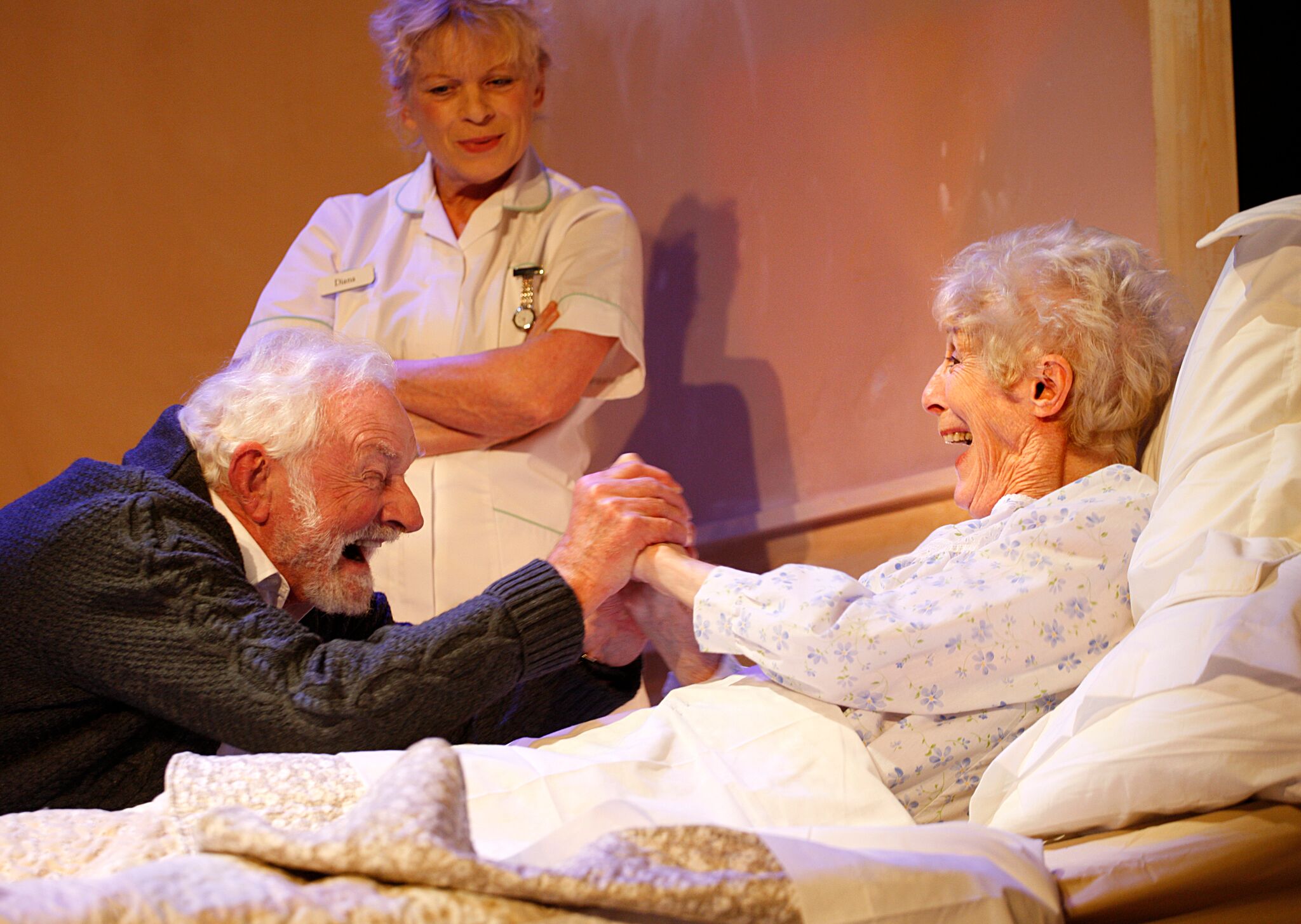
Plato thought that the world would be improved once rulers were also philosophers. Whether the same claim could be made for theatre were playwrights drawn from the ranks of philosophers is at least debatable, though examples are easy to find of playwrights with a philosophical bent producing stuff that gets bums on seats and accolades in the weeklies. John Mighton is such a one and his play about ageing and memory loss is a shining example of a complex idea being given dramatic form.
Where Florian Zeller’s, The Father, wrings every ounce of emotion from a similar, albeit more acute, version of this increasingly urgent problem, Mighton invites us to contemplate the issues at an intellectual level. His is a sensitive and humane look at the questions of personal identity and autonomy as memory fails as a natural function of ageing in two residents of a Canadian nursing home.
Where Zeller literally (and very cleverly) puts us in the shoes of the central character of the father, allowing us to see the world from his perspective, Mighton uses the more traditional routes of sympathy and empathy. By using the two thoughtful and caring children of the aged p’s he leads us into the story which explores the notion that memory is both at the core of personal identity and a prerequisite of autonomy. When he learns of his mother’s attachment to fellow inmate Patrick, Donald (Raymond Coulthard) attempts to intervene in the relationship in the questionable if understandable belief that her failing memory makes her vulnerable and thereby incapable of making decisions about her own emotional welfare. This seems to scotch an inchoate relationship between himself and Patrick’s daughter, Anna (Patricia Potter) who takes a different, more tolerant view of the relationship between the parents.
Engaging us at an emotional level are the two parents, Clara (Helen Ryan) and Patrick (Patrick Godfrey) who may or may not (it’s left unclear) have been in a loving relationship many years prior, in their youth, before he was sent away to do work as a code breaker during the Second World War. Ms Ryan is utterly engaging in her crystalline vagueness. We see in her not a woman going dotty, but rather someone for whom the thread of memory has worn thin and is easily broken. Similarly Mr Godfrey shows us a man, like Clara, not lacking in dignity, but in danger of having it compromised by those around him, loving and caring though they may be.
Almost as a counterbalance to their relative clarity, Holly de Jong gives us, in Agnes, a character altogether losing her grip on reality and the norms of social behaviour. Mighton also throws in a vicar (Silas Carson) for some trite commonplaces about god and morality and a nursing auxiliary (Ishia Bennison) as representative perhaps of a benign yet ultimately indifferent society.
This touching and timely show keeps up the Ustinov’s record of producing or hosting theatre of the highest quality with impeccable acting and writing and directing of the first order. ★★★★☆ Graham Wyles 4th October 2016

